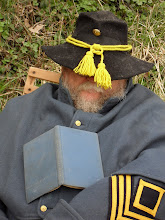Ticket, passport, visa, please.
Some time ago, the folks who waste their valuable time reading this bilge may remember I remarked, "One more (modern convenience) and I'm headed straight back to the 12th century." ["Now Conveniently in Rear Rows!" 11 October 2010] Well, one more modern convenience showed up, so I'm out of here!
(I will, however, continue to add titles to the "Works" list as they are published.)
31 December 2010: Feast of St. Zoticus. Vandals, Alans, and Suebians cross Rhine invading Gaul 406 AD; James I of Aragon enters Palma reconquering Majorca 1229; Americans defeated Battle of Quebec 1775; Victoria chooses Ottawa as Canadian capital 1857; Czechoslovakia divides into Czech Republic and Slovakia 1992.
IT'S HERE! IT'S HERE AT LAST!
IT'S HERE! IT'S HERE AT LAST!
What? Christmas?
No, we're only half-past Advent. Contrary to popular belief in the pagan world, the Twelve Days of Christmas trail December 24th like a flag.
No, what's here is the Kindle version of Frans G. Bengtsson's The Long Ships. I just downloaded my copy at oh-dark-thirty.
So what?
Bengtsson's Viking tale, written during War World II, is two incompatible things (at least to those ignorant of history and who don't watch people)--good history and human comedy.
Set around the year 1,000 AD, it tells the story of Red Orm, a Norse businessman of the period. It begins with a attempted acquisition of livestock shares (in this case, sheep) by the captain and crew of a passing vacation cruise--remember, to go "aviking," is rather like the old joke "What does an Irishman do for a vacation?--He sits on someone else's stoop." These guys go on vacation each summer and steal someone else's sheep (and anything else they can physically lift). Orm declines the leveraged offer and, in doing so, receives a smack on the forehead with an ax. Happily for him and the long ship's captain, the the ax was oriented 90 degrees to it's most efficient operating position and Orm only ends up with a large bruise and the captain ends up with a rower to replace the one who was killed during negotiations.
Thus begins a theme that runs throughout the book--Orm has luck--battle luck, woman luck, weather luck (though he never seems to hit the lottery). And, Oy! Does he need it! Only a few of the things he has to put up with are being a galley slave down in Islamic Spain, having to beat feet or oars (I suppose) ahead of an irate caliph--something about the small matter of the theft of a ship, a large economy-sized Christian bell, and forgetting to give two weeks notice--enjoying his own vacation helping to shake down England (the whole country, mind you), converting to Christianity (I know the feeling, there's a woman involved in his case also), a search for his long lost brother's hoard of gold while avoiding a horde of unfriendly natives (are there any other kind in this type of story?), and finally having to clean up after the very worst missionary in Christendom.
Bengtsson had the refreshing ability to deliver hilarity with a perfectly straight face--you're halfway in before you realize just how funny the situation is (as an example, there is the heart-warming trial-by-combat involving a crone, a pair of purloined virgins, their future husbands, and a skinflint uncle).
Another joy of The Long Ships is that the history checks out. It is an excellent display of Europe in the run-up to the Second Coming expected on the dawning of 1,000 AD (after all, everybody knows the Lord always works in round numbers). It gives a good picture of the three-way-collision of Christianity, Islam, and Norse paganism and the heroes and knaves to be found in every belief system. Medieval history without pain and, best of all, you can let your teen read it--if they can get it away from you.
(Note to FTC: Bought it myself, oh guardians of confusion, needless expense, and red tape.)
15 December 2010: Feast of St. Urbitius. Belisarius defeats Vandals in Battle of Ticameron 533 AD, U.S. Bill of Rights ratified by Virginia 1791, Battle of Nashville 1864, 21st Amendment to U.S. Constitution takes effect--"The bar is open, boys."--1933, Gemini 6A and Gemini 7 make first manned space rendezvous 1965.
Labels:
Advent,
Christianity,
England,
Europe,
European history,
history,
priests,
Vikings
Subscribe to:
Comments (Atom)



